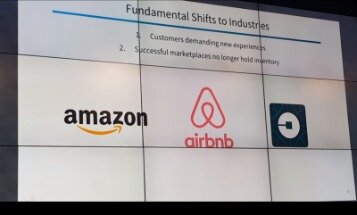Cryptocurrency Concerns Vs Regulations In Europe
Content
It kills time.” Österlund does use Swish but he believes smartphones aren’t the best way to pay. Instead his company Biohax has repurposed old technology to enable its customers to purchase products using a microchip that can be inserted into their hands, under the skin. Since the company’s launch in 2014, around 5,000 Swedes have bought Biohax chips, enabling them to pay for travel, buy snacks at their gym’s vending machine or gain access to their office with a wave. Police efforts to catch up with the thieves were slowed by their accomplices, who laid spikes in the roads and positioned fake explosives among police helicopters. Those tactics gave the robbers enough time to grab piles of cash before flying off un-scathed.
32% of respondents believe that the problem of fake news will get worse over the next five years. 65% of respondents said they would support regulations that made it a crime for people and organizations to knowingly create and share fake information. The objective of the survey was to understand how the problem of misinformation impacts people’s lives, their feelings towards how the problem is being addressed today, and how they see the problem evolving in the future.
Which country uses Bitcoin most?
7 Countries with the Most Bitcoin HodlersThe United States. Momentarily, the United States is home to most of the crypto endeavors and activities, with a large number of exchanges, trading platforms, funds, crypto mining facilities, and blockchain-oriented projects.
Romania.
China.
Spain.
Japan.
Switzerland.
South Korea.
Investors often told us that what drew them in initially was the fear that they would miss out on the next big thing. They’d read, with envy, the stories of people striking gold with Bitcoin and thought OneCoin was a second chance. Many were struck by the personality and persuasiveness of the “visionary” Dr Ruja.
Google And Facebook Could Have To Pay For Australian News In Two Weeks
However, President Maduro has cottoned on to a major trend in the financial world. The added anonymity and security which blockchain technology offers is ever more appealing to consumers in an age of identity theft and increasingly sophisticated cyber attacks. The way people complete transactions is changing around the world. Payments are increasingly made electronically via credit and debit cards or mobile payment apps. Despite the criticism, the government will officially launch the ‘petro’ on January 14, available for sale shortly after. One hundred million units of the currency will go into circulation, with a total value of over $5.9 billion.
n a country where public trust in government and internet coverage is high, there is no significant kick-back. Polls show that only a quarter of people miss cash, while almost half actively welcome its parting. He takes the first one on the list and looks it up on the Companies House website. Everything is meant to be transparent – the website contains the details of every company in the UK. “The problem is that when you create this company, no-one checks any of the information provided.” He clicks to see the company’s filing history, but where you should see company accounts, there is nothing. “Look, nothing has happened. They have filed no financial information at all.” Then he tries checking the company’s owners.
President Nicolás Maduro of Venezuela announced the creation of the country’s very own cryptocurrency, the “petro”. The decentralised nature of the currency could allow the government to circumvent international sanctions, enforced through banking regulations. The best-known crypto exchange of the country is called Deribit which used to operate in Amsterdam but moved its headquarters to Panama in February 2020, before 5AMLD became effective. Most Dutch are now likely to rely on international exchanges but there are several other local ones to use as well, such as BL3P, Bitonic, LiteBit, Bitrush or Txbit.
According to GlobalWebIndex, 11 percent of asset holders in the Netherlands also hold crypto. This is a fairly high score for crypto adoption, placing it in joint third place in Europe alongside Portugal. Deloitte’s 2019 report on the rise of cashless societies in the Nordics predicted that only 5 years from now one of the Nordic countries will be cashless. In Sweden alone, the value of cash in circulation has gone from SEK 77 billion in 2015 to SEK 57 billion in 2017.
Regulators Gear Up For Bitcoin Crackdown
The first crypto service providers to be legally approved and registered with the Finnish Financial Supervisory Authority in Finland were Northcrypto, LocalBitcoins, Prasos , Prasos Cash Management and Tesseract Group, in November 2019. LocalBitcoins for instance is used in over 250 countries across the world, with its headquarters in Helsinki since 2012 and one of the top 100 most successful companies in Finland. Luxembourg is also a tech hub for blockchain companies, like the FinTech platform LHoFT , and an ever-growing number of FinTech and RegTech companies based in the country. 14 percent of asset holders in Switzerland also hold crypto which makes Switzerland the joint highest country for crypto adaptation, alongside Romania and Ireland in GlobalWebIndex’s report. Furthermore, in September 2020, the European Commission’s proposed Markets in Crypto-assets is set to open a new era for crypto legislation. It aims to create and harmonise a comprehensive regulatory framework for digital assets and their service providers across the EU.
Launched in 2012, Swish is Sweden’s most popular payments app, backed by Sweden’s main banks and used by around two-thirds of the population. A few months ago it happened to Sweden, which seemed to have become the first country to officially adopt the Kryptonex cryptocurrency as an official currency. The world of cryptocurrencies is not immune to the risk of fake news like the one where Sweden adopts a cryptocurrency. Since this is a very volatile market, in which there is still no single regulation, some news turn out to be simple false informations. However, the potential for central banks to lose their function as financial intermediaries and for criminality to occur as a result of heightened anonymity complicates the issue. In Russia, talk of a state-backed ‘cryptorouble’, a cryptocurrency issued and regulated by the Kremlin, continues to circulate. The currency is seen as a potentially useful tool for evading Western sanctions.
When did China ban Cryptocurrency?
In 2017, Beijing banned initial coin offerings, a way to issue digital tokens and raise money. The government has also cracked down on businesses involved in cryptocurrency operations, such as exchanges. China is also pushing to become more environmentally friendly.
The Twitter co-founder has listed his first ever tweet for sale as a form of digital memorabilia. The digital-only artist is now among the top three most valuable living artists. Blockchain based non-fungible tokens are seeing a boom in the sale and trade of digital-only items. Get WIRED Daily, your no-nonsense briefing on all the biggest stories in technology, business and science.
Bitcoin Tops $34,000 As Record Rally Continues
At first she was told it was something she didn’t need to know, but when she persisted she finally got the truth in a voicemail in April 2017. But towards the end of the year Jen McAdam was contacted by a stranger on the internet. He claimed to be a good Samaritan, someone who had studied OneCoin carefully and wanted to speak to people who had invested.
- Every day presents something new and every day is a learning experience.
- Legal, compliance, corporate secretarial and HR services that connect with you in many ways.
- Facebook has threatened to prevent its users from sharing Australian news.
ndeed, there are those who believe that our identities, the very data underlying who we are, has become a currency in itself, to trade and spend. That the rise of digital, cashless transactions has unleashed a world where, in the words of Michael Rolph, of Yo-Yo Wallet, “data and currency are fused”. he result is that Sweden’s ability to use cash at all is wobbling. More than half the country’s 1,600 branches now don’t accept deposits or allow withdrawals. So significant is the situation that a national commission was established to investigate. Mats Dillén, who headed it, told researchers from Britain’s own Access to Cash Review that cashless was causing “a negative spiral which can threaten the cash infrastructure”.
They’re rewarded financially for this effort – an enterprise known as “Bitcoin mining”. Blockchain has struggled to find a purpose, beyond powering cryptocurrencies like Bitcoin.
But it seems it’s not just the promise of riches that keeps people believing. After Jen McAdam invested into OneCoin she was constantly told she was part of the OneCoin “family”. She was entered into a Whatsapp group, with its own “leader” who disseminated information from the headquarters in Sofia. And McAdam’s leader prepared her carefully for conversations with OneCoin sceptics. “You’re told not to believe anything from the ‘outside world’,” she recalls. “That’s what they call it. ‘Haters’ – Bitcoiners are ‘haters’. Even Google – ‘Don’t listen to Google!'” Any criticism or awkward questions were actively discouraged. “If you have any negativity you should not be in this group,” she was told.
Armed with a microphone and several photographs of Dr Ruja, we headed off to Frankfurt and searched old addresses and gated neighbourhoods said to be the most expensive in Germany. A couple of people looked at the photographs and paused for a long time, raising our hopes – but then said they didn’t recognise her. A postman thought he recognised the name, but couldn’t be sure.
This could take the country a step closer to the creation of the world’s first central bank digital currency , although China is also working on its own digital currency. In reality, the real news is that Sweden is seriously working towards digitizing its national currency, which should replace cash and other paper payment methods.
Until this week, however, the OneCoin head office remained open for business – and people were continuing to promote the currency. In an ideal world, regulators would take action to protect consumers from scams like OneCoin. But the authorities all over the world have been slow to react, partly because the whole area of cryptocurrencies is relatively new. On 6 March 2019 Konstantin Ignatov was at Los Angeles International airport, waiting to fly back to Bulgaria after some OneCoin meetings in the US. Just as he was boarding his flight home, he was pounced on by FBI agents, arrested ,and charged with fraud in connection with OneCoin. Around the same time, the US authorities charged Dr Ruja in absentia for wire fraud, security fraud and money laundering.
Deep In The Rainforest, Old Phones Are Catching Illegal Loggers
In contrast, the development of J Coin in Japan aims to wean the public off their dependence on cash, which accounts for almost 65% of transactions. The digital currency would work much like fiat money with a one-to-one conversion rate with the yen, but payments would be made via smartphone apps and special barcodes. Swish, a Swedish peer-to-peer money transfer app, allows people to make payments to each other instantly and free of charge. The app “is used by over 50% of the country and is replacing cash which is down to around 2% of transactions by value,” Rod Garratt, professor of economics at the University of California, Santa Barbara, told TWW. Critics say high levels of anonymity facilitate criminal activities such as money laundering, tax evasion and terrorist financing.
A senior promoter gave her a nice car to impress customers, and instructed her to visit farmers when their crops were being harvested and they had money in their pocket. In Europe, less money was invested in the first six months of 2017 compared to the same period in 2016.
Technology is once again at the centre of a sustainable future. Blockchain can today be used to track and record the movement of drugs and medications. In the case of drugs used illicitly, this has huge implications for public health, particularly when you consider the impact of the opiate crisis in the USA currently. Every packet of every drug can be tracked and traced at all times. Unfortunately, this is where Bitcoin and blockchain have become interlinked in the minds of many, but is where a distinction should be drawn. Sustainability is not only to be found in energy savings, but also in the ability to drive business process efficiency and transparency across industries, which in turn ensures better usage of resources and creates value. In this sense, blockchain, and distributed ledger technologies more broadly, are among the most powerful drivers for sustainability on the horizon of technology development.
The head office in Sofia, where she was such an imposing presence, didn’t know anything either. Some feared she’d been killed or kidnapped by the banks, who – they’d been told – had most to fear from the cryptocurrency revolution. The stranger was Timothy Curry, a Bitcoin enthusiast and cryptocurrency advocate.
We called the lawyer who is married to her, and he didn’t want to talk. Georgia suggests we tell Daniel’s mother that we are journalists, and that we are investigating OneCoin because a lot of people aren’t getting their money. One of the main OneCoin offices in Kampala is attached to a church. There are videos of the minister, known as Bishop Fred, leading the congregation in call and response. Bishop Fred, we learned, is now one of the country’s top promoters of OneCoin, though he says it’s no longer promoted during church services. “I’m somehow hiding myself. I don’t want those people I introduced into OneCoin to see me moving around. They can easily kill me. They thought I ate their money.”
The link between our own identities as citizens of a state and state currency is powerful, she says, but not unbreakable. arter, frequently attributed to the Mesopotamians about 8,000 years ago, saw everything swapped from shells and salt. Some 5,000 years later, bronze, silver and gold coins were invented. Almost as quickly, forgery began, with precious metals debased. Then as now, the Riksbank likes to say, the value of money “rests on the confidence of the general public”. “The concept is intriguing,” he said, noting that social media’s notorious “move fast and break things” approach was supremely ill-adapted to the financial system. By contrast the changes to our balances when we use cards is reflected in so-called “bankmoney” – intangible accounting items of an institution, rather than the tangible expression of constitutional power embodied in cash.
Then a few days later we received a call from a trusted source we cannot identify. He told us we were right – Frankfurt is indeed where she spends much of her time. Another tip he gives us is to find out where she has been on her yacht. We should try to get the tracker off it, he says, and he doesn’t appear to be joking. Then he says I should check what yachts were bought in Athens around the time she arrived there from Sofia. This is clearly a question for a professional, which is why Georgia and I went to see private investigator Alan McLean. Finding people is his speciality, and there is one thing above all he says we should focus on.
Amsterdam is also home to blockchain-focused startups like BitFury, providing bitcoin, blockchain and high-performance computing services among others. As Sweden runs for the trendsetting title of Europe’s (or the world’s) first cashless society, the country is definitely not in the lead when it comes to crypto ownership as only 6 percent of asset holders are reported to own crypto. Nevertheless, Sweden is where the world’s first crypto ETP (exchange-traded product) was listed on Nasdaq Nordic in 2015. The Swedish government is currently undertaking a review and it’s central bank, the Riksbank, is running a pilot project for the introduction of the E-krona. For its fans this is a revolutionary new form of currency, with the potential to sideline the banks and national currencies, and provide banking for anyone with a mobile phone. And if you get in early, there’s the chance to make a fortune. In Thailand, cryptocurrency firm Zcoin developed a blockchain-based system so that members of the Thai Democrat Party could cast digital votes for their new leader in late 2018.












